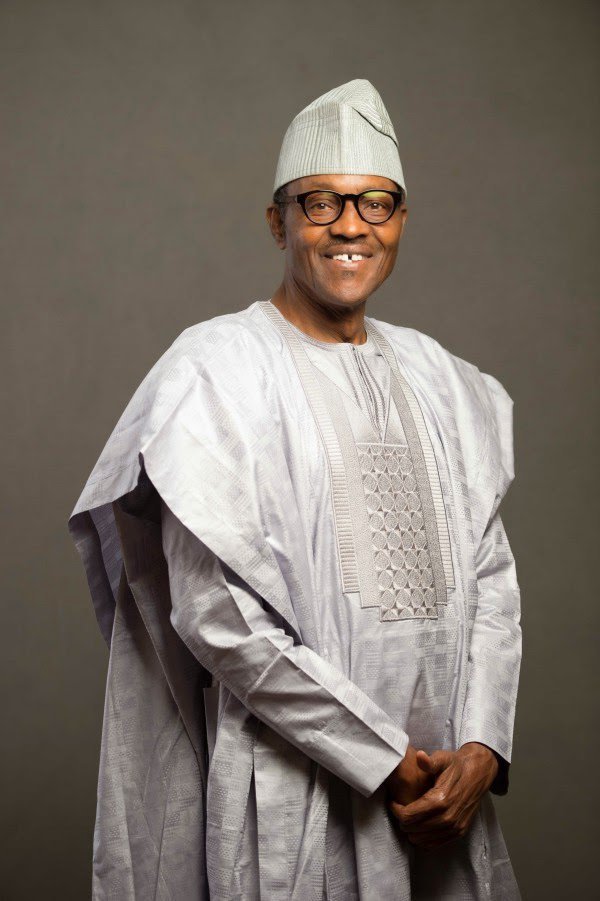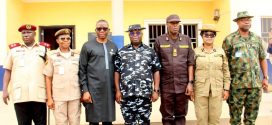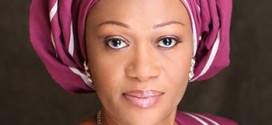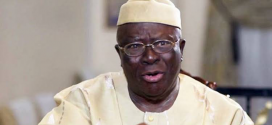Olabode Opeseitan
I see pride, arrogance and deceit instead of genuine reconciliation, reassurances and rapprochement.
Which one is better?
Option 1: “To the #Christian brotherhood, I understand your genuine concern and consternation over Muslim-Muslim ticket. The choice we made was out of political exigencies and not a premeditated intention to slight our highly valuable and revered Christian brothers and sisters. I have a long history of enduring relationships with Christians all over Nigeria, many of whom have been my strongest political associates for over 4 decades. My wife, Oluremi, is a Pastor of the Redeemed Christian Church of God. Religious tolerance is an irreducible minimum in my household. I wish to give you all my firm assurance, and you can hold me accountable to this; no Nigerian, Christian, Muslim or practitioners of any other religious faith, will be discriminated against under my watch because of their religion, race or legitimate political convictions. I will do my utmost to unite and heal our nation.”
Or
Option 2: “What is all the noise about Muslim-Muslim ticket for? When we meet at the Federal Executive Council, our focus will be on how to take this nation forward on the economy, welfare, agriculture and so on. When I was Lagos State Governor and paid the WAEC fees of students, did I bother to know who is a Christian or a #Muslim? The discussion should be about character and integrity. True leadership is not grounded in religious pandering, populism or sentiment. To forge ahead as a nation towards development and prosperity, we must instead break the shackles of old thinking”.
In a highly ethno-religious sensitive clime like ours, Option 2 to me sounded like brinkmanship. I don’t even want to think about the fake Bishop issue. It was shoddily conceived and infantilely executed!!! It is almost like a mockery of other people’s faith.
My concern is basic. If as a candidate you are dismissive and intolerant of the people’s deep palpitations, what will happen when you become President? The people want an accessible President that will treat them with honour and dignity, listen to their pain points and address their concerns. We don’t want another 8 years of an “olundu” (indifferent) Presidency.
The optics from Asiwaju’s camp are disturbing. Despite his shortcomings, as the candidate of the ruling APC, he holds the ace but there are strong signs he is losing grip. There are trust issues between him and many #Nigerian youths for instance. I have not seen any deep concerted moves he is making to address the agitations of this critical segment and begin to build confidence in them to believe that with him as President, there is a bankable hope of a greater tomorrow.
Atiku Abubakar on the other hand is quietly gaining momentum; so is Mr. Peter Obi. The expectation of many Nigerians in 2023 is to have a leader that will serve the best interest of the people. Irrespective of their flaws in varying degrees, I believe that any of #Atiku, #Tinubu, #Kwankwaso or #PeterObi will run Nigeria much better than Buhari. I was initially opposed vehemently to Atiku because it is most unfair for another Northerner to rule after the disastrous 2 terms of President Buhari with the mindless and unconscionable marginalisation of the Middle Belt and the South. Then, I softened my stance a bit. Atiku is more enlightened, more sophisticated, more tolerant and much more administratively savvy than Buhari. But Atiku is also damaged by the allegations of corruption against him, accentuated by his former boss, Olusegun Obasanjo. That is the energized political volcano he (Atiku) must navigate successfully if he ever hopes to rule this country.
Of the four front runners, Peter Obi is the most prudent in managing public funds. He is also striking the right chord with the youths, even though he needlessly overexaggerates often. The truth, however, as a friend reminded me recently, is that the people are not looking for a saint, for none exists.
But then, his platform is frail. The Labour Party needs a few years of building from the ground up approach, relentless and consistent mobilisation, disciplined financial contributions and total dedication of those who believe in the struggle, to build it into a formidable political machine. This struggle should have started immediately after the last Presidential election, particularly if you don’t have the benefits of the platform of a major political party.
Just look at the miserable performances of the Labour Party in the Osun and Ekiti Governorship elections and you will be back in the real world except if you are a needle in a haystack of histrionics that erroneously equates only social media activism with actual votes. In Ekiti, Labour Party got 195 votes out of 351,865 valid votes. In Osun State, LP scored 2,729 votes (0.34%) out of 823,124 valid votes.
Let’s start with PVCs. Only 1,156,590 out of 6,570,291 registered voters (17.6%) participated in the 2019 general election in Lagos State. As at the end of June this year, an electoral officer in Lagos State disclosed that a total of 1,091,157 old PVCs were still uncollected by their owners in Lagos Mainland LGA alone. So, how do you effect a change when you are not even ready to vote?
The good take out from the activism is that political consciousness in Nigeria has increased significantly. Never again will the people allow any leader to ride roughshod over them. It is still a good start, and the gained momentum must not be abandoned irrespective of the outcome of the next elections. The next level is to be the main deciding factor in who governs Nigeria.
If you want to stop a leader you are totally dissatisfied with from getting to power, play your part. Register to vote, get your PVC and vote on election day. You have the numbers. You can even send existing political permutations into a tailspin.
 Hottestgistnaija.com
Hottestgistnaija.com





